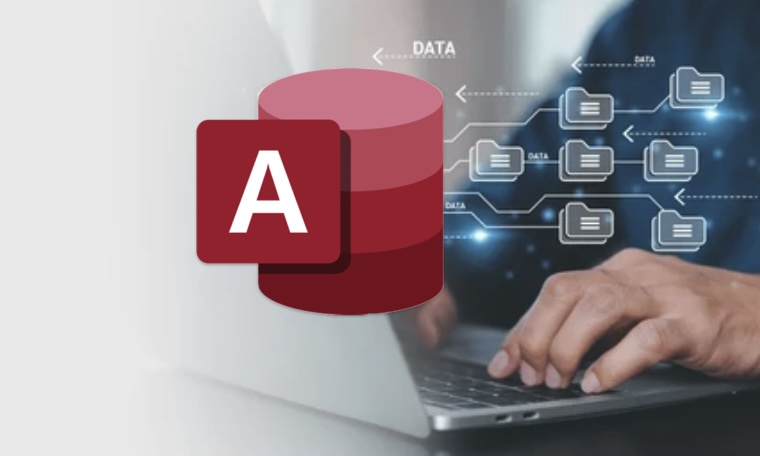Microsoft Access, commonly known as MS Access, is a powerful database management system that offers a variety of features designed to help users store, manage, and analyze information efficiently. In this article, we’ll delve into the essential MS Access specifications, helping you understand their capabilities and limitations. We’ll explore everything from database size limits to the intricacies of data types, providing you with a clear picture of what MS Access can do for you.
What is Microsoft Access?

Microsoft Access is a database management system from Microsoft that combines the relational Microsoft Jet Database Engine with a graphical user interface and software-development tools. It is part of the Microsoft Office suite of applications, included in the Professional and higher editions or sold separately.
Key Specifications of MS Access
Microsoft Access is a powerful relational database management system (RDBMS) designed to help users efficiently store, manage, and analyze their data. Below are the key specifications and requirements for running MS Access effectively:
System Requirements
To run MS Access efficiently, your system should meet the following specifications:
| Component | Minimum Requirement |
| Operating System | Windows 10 or later |
| Processor | 1.6 GHz or faster, 2-core |
| Memory | 4GB RAM for 64-bit; 2GB RAM for 32-bit |
| Hard Disk Space | 4GB available disk space |
| Display | 1280 x 768 screen resolution |
These system requirements ensure smooth operation and optimal performance of MS Access on your computer.
Database Size and Scalability
MS Access offers scalability to accommodate varying database sizes and user loads:
- Maximum Database Size: 2 GB per database file.
- Simultaneous Users: Supports up to 255 concurrent users, making it suitable for small to medium-sized enterprises.
With its scalability, MS Access can effectively handle the data storage and access needs of growing businesses.
Data Types and Storage Formats
MS Access supports a wide range of data types and storage formats, enabling efficient management of diverse data:
- Text
- Memo
- Byte
- Integer
- Long Integer
- Single and Double Precision Float
- Currency
- Date/Time
- Autonumber
- Yes/No
- OLE Object
- Hyperlink
- Attachment
These data types allow users to store and manipulate data in various formats, meeting different business requirements effectively.
Connectivity and Integration
MS Access databases can connect to various data sources, facilitating seamless data integration and accessibility:
- SQL Server
- Oracle
- Excel
- SharePoint
- Outlook
- Other Access databases
This connectivity enables users to integrate data from multiple sources into MS Access, enhancing data analysis and decision-making processes.
Benefits of Using MS Access

User-Friendly Interface
MS Access offers a user-friendly interface that makes it accessible for users with little programming experience. It features templates and wizards that help in creating database applications easily.
Cost-Effective
As part of the Microsoft Office suite, MS Access is a cost-effective option for small to medium businesses that require a powerful database management system without the need for significant investment.
Versatile Reporting Tools
MS Access provides versatile reporting tools that allow users to create insightful, real-time reports with ease. These reports can be customized to meet the specific needs of the business.
Enhanced Data Security
With MS Access, you can implement robust data security measures including password protection and encryption to protect sensitive information.
Common Uses of MS Access
MS Access is widely used for:
- Inventory Management: Oversight of goods flow within a company, including tracking levels, replenishing stock, and forecasting demand to optimize inventory levels and reduce costs.
- Contact Management: Organization and maintenance of contact databases, tracking interactions, and communication history to streamline communication and enhance relationships with stakeholders.
- Accounting: Recording, summarizing, analyzing, and reporting financial transactions to provide insights into financial health, performance, and compliance, aiding decision-making and strategic planning.
- Project Management: Planning, organizing, executing, and controlling resources and activities to achieve project goals, ensuring timely completion within budget and quality standards.
- Employee Information Management: Collection, storage, and organization of employee data including personal details, employment records, and performance evaluations to support HR processes and strategic decision-making.
These applications leverage the MS Access specifications to provide efficient and effective data management solutions.
Understanding MS Access Specifications
MS Access is part of the Microsoft Office suite and is known for its user-friendly interface and versatile data management capabilities. Here are some key MS Access specifications you should know:
- Database Size: MS Access supports databases up to 2 gigabytes in size, which includes the data and all objects such as tables, queries, forms, and reports.
- Table Specifications: A single database can hold up to 32,768 objects, and each table can support up to 255 fields.
- Concurrency: MS Access is designed for use by small to medium-sized teams. It can efficiently handle up to 255 concurrent users, making it suitable for departmental applications.
- Data Types: MS Access supports a variety of data types including Text, Memo, Number, Date/Time, Currency, AutoNumber, Yes/No, OLE Object, Hyperlink, and Attachment.
Enhancing Data Integrity and Validation with MS Access
MS Access is meticulously designed to focus on crucial aspects like data integrity and validation, providing robust tools that are essential for maintaining the accuracy and reliability of data within databases:
- Field Validation: MS Access allows users to implement specific validation rules for fields, ensuring that the data entered not only meets but maintains strict quality and consistency standards.
- Record Validation: Extending beyond individual fields, record validation rules are crucial for ensuring that data across multiple fields within a record conforms to predetermined criteria, thereby safeguarding the integrity of the entire dataset.
Exploring Advanced Features in MS Access

To enhance its usability and functionality, MS Access includes several advanced features that cater to more complex database management needs:
- SQL Support: MS Access supports the capability for users to write and execute SQL queries directly against their database. This feature provides powerful and flexible data manipulation capabilities that are essential for complex data analysis and reporting.
- Modules and VBA: For those looking to further customize and automate their databases, Visual Basic for Applications (VBA) offers a platform to develop rich scripts and automation routines. This not only enhances the functionality of the databases but also increases their efficiency and effectiveness in handling various tasks.
Understanding the Limitations of MS Access
Despite its many benefits, it is important to be aware of the limitations associated with MS Access, especially when evaluating it for different scales and scopes of application:
- Scalability: While MS Access is quite effective for small to medium-sized applications, it may not perform as well in environments that require handling very large-scale databases or applications that demand significant processing power.
- Web Integration: Although not primarily designed for web-based applications, MS Access can be integrated with SharePoint to enhance accessibility and offer additional features. However, it may not be the optimal solution for purely web-based applications.
Real-World Applications of MS Access Specifications
MS Access is exceptionally useful in a variety of real-world scenarios, making it a favorable option for many businesses and organizations:
- Small Business Solutions: Small businesses find MS Access particularly beneficial for managing vital operational data such as customer databases, inventory systems, and resource planning applications on a smaller scale.
- Departmental Applications: Within larger organizations, MS Access is often utilized for creating department-specific applications. These can range from tracking employee information and managing projects to handling budget operations and other administrative tasks, proving its versatility and utility in diverse organizational contexts.
Conclusion
Understanding the MS Access specifications is crucial for anyone looking to utilize this powerful database tool effectively. Whether you’re managing a small business database or developing departmental applications, MS Access provides a robust platform with various features to meet your data management needs. Remember, while MS Access has its limitations, its versatility in handling moderate-sized databases and user-friendly design makes it an excellent choice for many applications.
FAQ
A1: MS Access can manage up to 2 GB of data per database, which includes all tables, queries, forms, reports, and modules. This makes it suitable for small to medium-sized datasets.
A2: Yes, MS Access can handle up to 255 concurrent users, making it a viable option for small to medium-sized teams.
A3: While not primarily designed for web applications, MS Access can be integrated with Microsoft SharePoint to create web-enabled databases.
A4: MS Access supports several data types including Text, Number, Date/Time, Currency, Yes/No, and more, allowing for versatile data management.
A5: MS Access supports VBA (Visual Basic for Applications), which allows developers to create custom forms, automate tasks, and build complex business logic.
A6: The maximum file size for an MS Access database is 2 GB. However, for better performance, it is advisable to keep the database size under this limit.
A7: MS Access offers several data security features, including password protection and encryption, to help protect your data from unauthorized access.
A8: Yes, MS Access can connect to several other databases including SQL Server, Oracle, and other Access databases. This facilitates the integration and management of data across different platforms.
A9: MS Access is ideal for small to medium-sized enterprises. Large-scale enterprises might require more robust solutions like SQL Server or Oracle due to the larger data handling and more complex system requirements.




